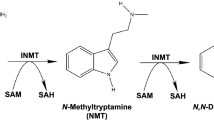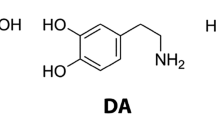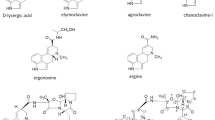Abstract
CLAYSON1 has suggested that aromatic amines are carcinogenic by virtue of their transformation in the animal body into orthohydroxyamines. Walpole, Williams and Roberts2 have shown that 4-amino-diphenyl is a potent inducer of bladder tumours in the dog, and Spitz (quoted by Walpole et al.2) has obtained bladder tumours in this species with benzidine. The purpose of this communication is to show that these aromatic amines are in fact converted into orthohydroxyamine derivatives by the dog.
This is a preview of subscription content, access via your institution
Access options
Subscribe to this journal
Receive 51 print issues and online access
$199.00 per year
only $3.90 per issue
Buy this article
- Purchase on Springer Link
- Instant access to full article PDF
Prices may be subject to local taxes which are calculated during checkout
Similar content being viewed by others
References
Clayson, D. B., Ann. Rep. Brit. Emp. Cancer Campaign, 29, 148 (1951); Brit. J. Cancer, 7, 460 (1953).
Walpole, A. L., Williams, M. H. C., and Roberts, D. C., Brit. J. Indust. Med., 11, 105 (1954).
Boyland, E., and Sims, P., J. Chem. Soc., 980 (1954).
Author information
Authors and Affiliations
Rights and permissions
About this article
Cite this article
BRADSHAW, L., CLAYSON, D. Metabolism of Two Aromatic Amines in the Dog. Nature 176, 974–975 (1955). https://doi.org/10.1038/176974a0
Issue Date:
DOI: https://doi.org/10.1038/176974a0
Comments
By submitting a comment you agree to abide by our Terms and Community Guidelines. If you find something abusive or that does not comply with our terms or guidelines please flag it as inappropriate.



